-
 Bitcoin
Bitcoin $87,420.1223
2.60% -
 Ethereum
Ethereum $1,636.4067
1.37% -
 Tether USDt
Tether USDt $1.0000
0.01% -
 XRP
XRP $2.1169
1.54% -
 BNB
BNB $601.0884
1.43% -
 Solana
Solana $140.1004
-0.72% -
 USDC
USDC $1.0000
0.01% -
 Dogecoin
Dogecoin $0.1604
1.40% -
 TRON
TRON $0.2447
0.06% -
 Cardano
Cardano $0.6381
0.95% -
 Chainlink
Chainlink $13.5471
4.61% -
 UNUS SED LEO
UNUS SED LEO $9.3786
0.66% -
 Avalanche
Avalanche $20.0118
0.48% -
 Stellar
Stellar $0.2506
1.63% -
 Toncoin
Toncoin $3.0192
1.51% -
 Shiba Inu
Shiba Inu $0.0...01265
2.22% -
 Hedera
Hedera $0.1707
2.51% -
 Sui
Sui $2.2103
2.61% -
 Bitcoin Cash
Bitcoin Cash $338.1510
-0.15% -
 Polkadot
Polkadot $3.9299
1.13% -
 Hyperliquid
Hyperliquid $18.1280
-1.79% -
 Litecoin
Litecoin $79.1383
3.75% -
 Bitget Token
Bitget Token $4.5117
-1.55% -
 Dai
Dai $1.0000
0.01% -
 Ethena USDe
Ethena USDe $0.9992
0.00% -
 Pi
Pi $0.6401
-1.67% -
 Monero
Monero $215.6788
-0.99% -
 Uniswap
Uniswap $5.4156
1.65% -
 Pepe
Pepe $0.0...07786
3.34% -
 Aptos
Aptos $5.1390
4.76%
What can SUSHI coin be used for? Comprehensive analysis of the application scenarios of SUSHI coins
SushiSwap's SUSHI coin empowers holders with governance participation, staking rewards, liquidity provider incentives, NFT marketplace access, and broader DeFi applications, including lending and payment acceptance.
Oct 01, 2024 at 12:36 pm
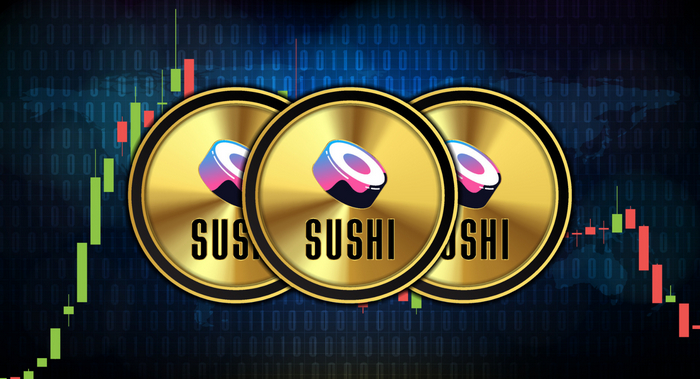
1.Introduction to SUSHI Coin
SUSHI coin is the native cryptocurrency of the SushiSwap decentralized exchange (DEX), a popular platform for trading cryptocurrencies and yield farming. SUSHI holders can participate in governance, earn rewards, and access exclusive features on the SushiSwap platform.
2.Use Cases of SUSHI Coin
SUSHI coin offers various use cases within the SushiSwap ecosystem and beyond:
a. Governance: SUSHI holders can participate in governance by voting on protocol upgrades, fee structure changes, and other platform decisions.
b. Staking Rewards: SUSHI can be staked on SushiSwap to earn rewards in the form of additional SUSHI tokens.
c. Liquidity Provider Incentives: Liquidity providers who deposit funds into SushiSwap pools can earn SUSHI tokens as rewards for their contributions.
d. Trading: SUSHI can be traded on various cryptocurrency exchanges, enabling users to speculate on its price or use it as a medium of exchange.
e. NFT Marketplace: SushiSwap has launched an NFT marketplace where SUSHI tokens can be used to purchase and trade NFTs.
3.Additional Use Cases
Beyond the SushiSwap ecosystem, SUSHI coin has also gained traction in other applications:
a. DeFi Lending and Borrowing: SUSHI can be used as collateral for loans on DeFi platforms such as Aave and Compound.
b. Payment Method: Some merchants and services now accept SUSHI as a payment method.
c. Crypto Investment: SUSHI can be included in crypto investment portfolios as a potential source of value appreciation.
4.Limitations of SUSHI Coin
It's worth noting that SUSHI coin, like other cryptocurrencies, is subject to market volatility and price fluctuations. Its value can fluctuate significantly based on supply and demand, as well as overall crypto market sentiment. Additionally, the use cases and applications of SUSHI coin may evolve over time, subject to the platform's development and community feedback.
Disclaimer:info@kdj.com
The information provided is not trading advice. kdj.com does not assume any responsibility for any investments made based on the information provided in this article. Cryptocurrencies are highly volatile and it is highly recommended that you invest with caution after thorough research!
If you believe that the content used on this website infringes your copyright, please contact us immediately (info@kdj.com) and we will delete it promptly.
- CryptoPunks Maintained Their Leadership in NFTs
- 2025-04-21 10:40:13
- Web3 ai's $WAI Presale Surges Toward 8x Gains! Pi Crashes 70% & HYPE TVL Falls
- 2025-04-21 10:40:13
- Artificial Superintelligence Alliance [FET] has rallied 53% in 11 days
- 2025-04-21 10:35:13
- Ethereum (ETH) Network Activity Decreases, Driving New Proposal to Switch to RISC-V
- 2025-04-21 10:35:13
- President Donald Trump Calls to Stop Minting New Pennies, Citing Rising Production Costs
- 2025-04-21 10:30:13
- Weekly Funding Report: Auradine Raised $153M Series C, Targeting AI Infrastructure
- 2025-04-21 10:30:13
Related knowledge

What is impermanent loss insurance? What are the solutions?
Apr 12,2025 at 01:14am
What is Impermanent Loss Insurance? What are the Solutions? Impermanent loss is a significant concern for liquidity providers in decentralized finance (DeFi) platforms. It occurs when the price of tokens in a liquidity pool changes compared to when they were deposited, leading to a potential loss if the provider decides to withdraw their liquidity. To m...
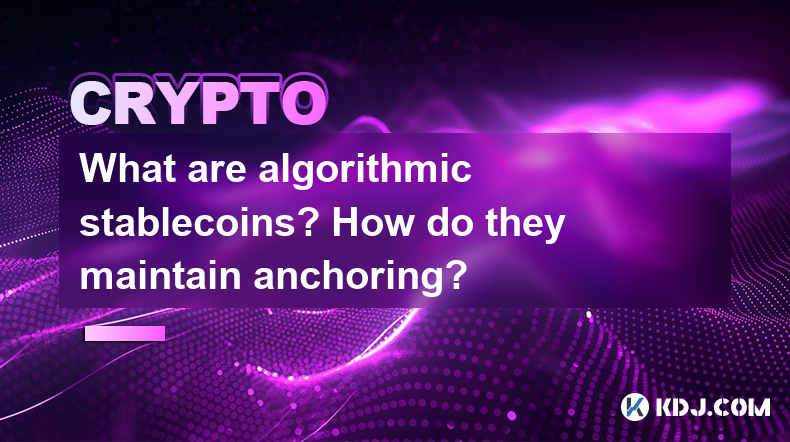
What are algorithmic stablecoins? How do they maintain anchoring?
Apr 12,2025 at 11:35am
Algorithmic stablecoins represent a fascinating and innovative segment within the cryptocurrency ecosystem. These digital assets are designed to maintain a stable value, typically pegged to a fiat currency like the US dollar, through the use of algorithms rather than traditional collateral. This approach distinguishes them from other types of stablecoin...
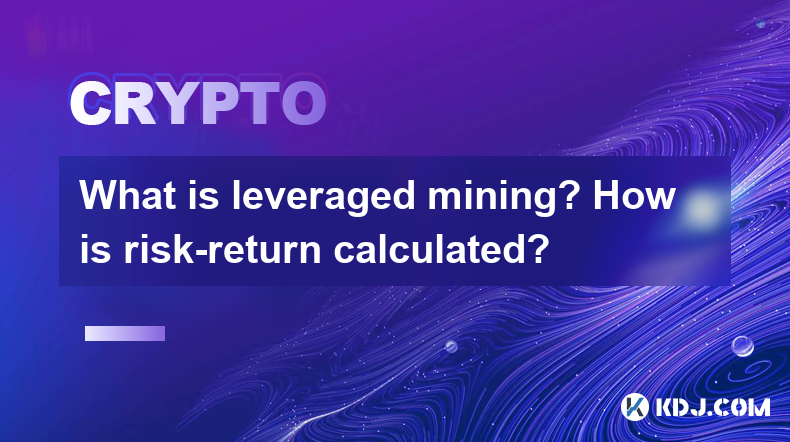
What is leveraged mining? How is risk-return calculated?
Apr 11,2025 at 04:07pm
What is Leveraged Mining? How is Risk-Return Calculated? Leveraged mining is a strategy used in the cryptocurrency space where miners borrow funds to increase their mining capacity and potential returns. This approach can amplify both profits and losses, making it a high-risk, high-reward endeavor. Understanding how to calculate the risk and return asso...
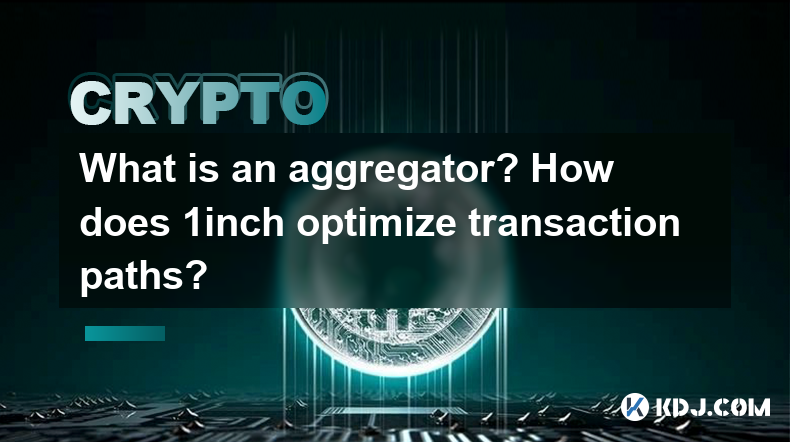
What is an aggregator? How does 1inch optimize transaction paths?
Apr 12,2025 at 05:00pm
An aggregator in the cryptocurrency space is a tool that compiles and compares data from multiple decentralized exchanges (DEXs) to find the best possible trading routes and prices for users. Aggregators are essential for traders looking to optimize their transactions, as they can automatically search through various liquidity sources to ensure the most...
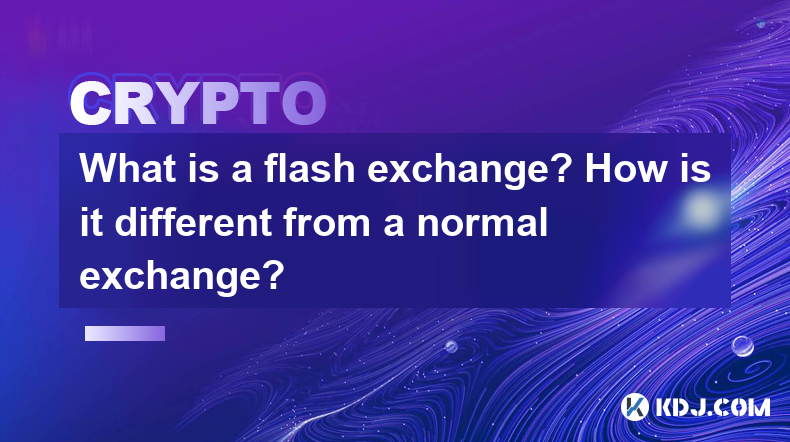
What is a flash exchange? How is it different from a normal exchange?
Apr 16,2025 at 03:43pm
A flash exchange, also known as a flash swap, is a relatively new concept within the cryptocurrency space that has gained significant attention due to its innovative approach to trading. Unlike traditional exchanges, flash exchanges leverage the power of decentralized finance (DeFi) protocols to enable instant, collateral-free trades. In this article, w...
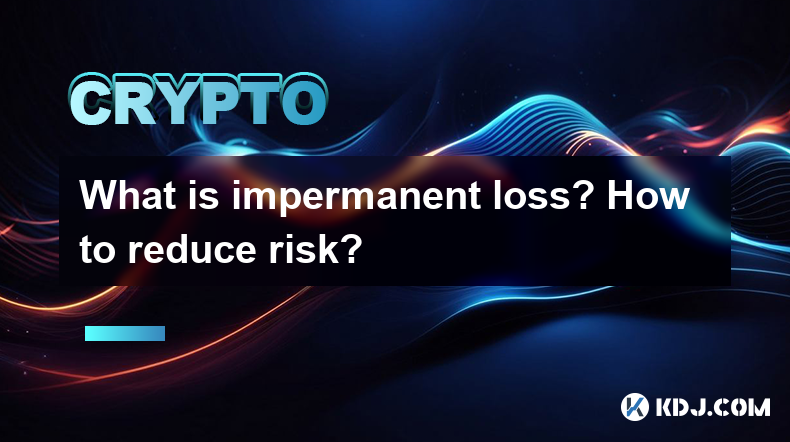
What is impermanent loss? How to reduce risk?
Apr 16,2025 at 11:14pm
What is Impermanent Loss? How to Reduce Risk? Impermanent loss is a term that frequently surfaces in the world of decentralized finance (DeFi), particularly when discussing liquidity provision on automated market makers (AMMs) like Uniswap or SushiSwap. Understanding this concept is crucial for anyone looking to engage in liquidity provision, as it dire...

What is impermanent loss insurance? What are the solutions?
Apr 12,2025 at 01:14am
What is Impermanent Loss Insurance? What are the Solutions? Impermanent loss is a significant concern for liquidity providers in decentralized finance (DeFi) platforms. It occurs when the price of tokens in a liquidity pool changes compared to when they were deposited, leading to a potential loss if the provider decides to withdraw their liquidity. To m...

What are algorithmic stablecoins? How do they maintain anchoring?
Apr 12,2025 at 11:35am
Algorithmic stablecoins represent a fascinating and innovative segment within the cryptocurrency ecosystem. These digital assets are designed to maintain a stable value, typically pegged to a fiat currency like the US dollar, through the use of algorithms rather than traditional collateral. This approach distinguishes them from other types of stablecoin...

What is leveraged mining? How is risk-return calculated?
Apr 11,2025 at 04:07pm
What is Leveraged Mining? How is Risk-Return Calculated? Leveraged mining is a strategy used in the cryptocurrency space where miners borrow funds to increase their mining capacity and potential returns. This approach can amplify both profits and losses, making it a high-risk, high-reward endeavor. Understanding how to calculate the risk and return asso...

What is an aggregator? How does 1inch optimize transaction paths?
Apr 12,2025 at 05:00pm
An aggregator in the cryptocurrency space is a tool that compiles and compares data from multiple decentralized exchanges (DEXs) to find the best possible trading routes and prices for users. Aggregators are essential for traders looking to optimize their transactions, as they can automatically search through various liquidity sources to ensure the most...

What is a flash exchange? How is it different from a normal exchange?
Apr 16,2025 at 03:43pm
A flash exchange, also known as a flash swap, is a relatively new concept within the cryptocurrency space that has gained significant attention due to its innovative approach to trading. Unlike traditional exchanges, flash exchanges leverage the power of decentralized finance (DeFi) protocols to enable instant, collateral-free trades. In this article, w...

What is impermanent loss? How to reduce risk?
Apr 16,2025 at 11:14pm
What is Impermanent Loss? How to Reduce Risk? Impermanent loss is a term that frequently surfaces in the world of decentralized finance (DeFi), particularly when discussing liquidity provision on automated market makers (AMMs) like Uniswap or SushiSwap. Understanding this concept is crucial for anyone looking to engage in liquidity provision, as it dire...
See all articles





















































































